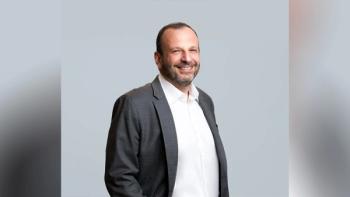
Small Biotechs Gain As the Span of Clinical Trial Outsourcing Grows
Small biotech companies benefit more from partnering with CROs rather than hiring a chief medical officer.
A customer approached me recently for advice on hiring a chief medical officer. My answer: “Don’t.”
The last thing his two-person company needed was to spend a lot of money increasing its staff by 50% and still not achieving its real objective. Not that there’s anything wrong with CMOs-I am one, after all-but tiny, virtual pharma companies like this client can, and should, invest their very limited resources more effectively.
“Why do you need a CMO at this stage?” I asked. “You’re two people. Why would you employ someone at such a high cost,”-the therapeutic specialty and New Jersey locations together would command a premium price-“when there are much more cost-effective options?”
What he really wanted was a medical expert who would help them design a development program and give them credibility in front of current and prospective investors. Even if they found a great candidate, I advised, they would still be better off engaging a CRO that has a depth of expertise and clinical trial experience. No matter how experienced and well-credentialed, one medical expert can offer only one set of viewpoints and experiences.
Our industry loves the romantic notion of small pharma and biotech upstarts driving big innovations in medical science, and the positive effect these companies have on drug development is beyond question. But the stakes could hardly be higher, with clinical trial costs in the stratosphere, and more than 99% of new compounds never reaching the market. These pioneers clearly need to balance their ambition and optimism with a strong dose of realism.
Simply put, small pharmas and biotechs lack the capabilities and infrastructure required to move projects beyond the early stages and get the traction they need to succeed. Even if my customer had hired a CMO, that person could not have offered the wealth of experiences and insights a contract research organization would provide by virtue of its deep multidisciplinary staff. If I’m consulting with a customer on a medical issue, not only do I have access to two dozen other medical experts, but also to specialists in regulatory, statistics, recruiting, site selection, and every other discipline in the clinical research continuum. (Not to mention our existing network of investigators who can advise on design.)
Productivity, quality, cost
Contract research began as a mostly tactically and operationally focused approach to trial outsourcing and has matured considerably over the years, branching into a wide range of services. As KPMG observed in a
A
Rather than commit scarce funds to people, buildings, equipment, and other capital-intensive investment, small companies find it more effective to join forces with CROs that provide the needed expertise and infrastructure. For example, customers often say they need scientific help, and they certainly do, but very seldom does a client need just scientific support. It likely also needs translational medical support, regulatory help, and any number of other things that they haven’t yet considered.
The first question I ask these companies is what response they have received from the regulators they’ve met with. People are often focused on getting their first patient enrolled and on other priorities that could wait until they get some initial regulatory feedback, if only because the investment community shows more interest in products when there is evidence of regulatory engagement.
A client in Europe was performing studies on the Continent for two immuno-oncology products and, seeking to expand its research to the U.S., needed help submitting an IND. We assembled a team that involved medical, regulatory, statistical support, and PK support. Following a gap analysis, we arranged a pre-IND meeting where the FDA offered its advice and where we pushed back in certain areas-for example, the agency recommended a placebo arm for one of the studies, but the sponsor considered that unnecessary. We were able to justify forgoing the placebo arm, and now we’re getting ready to begin two U.S. trials.
Appetite for outsourcing
That KPMG report forecasts an increasing appetite for outsourcing, identifying several areas where CROs can increase their contribution to the clinical development process. Among them:
- Launch planning and execution. CROs use their well-developed technology infrastructure and data assets to support product and portfolio planning and launch implementation more cost-effectively than in-house functions.
- Market planning and development. As experts in drug development and healthcare delivery, CROs are especially well equipped to help pharma companies develop market strategies.
- Market research and strategic analytics. CROs can offer drug and device makers advisory services around pricing and market research using insights they gain from electronic health records. Analytics also can be used to gauge the effectiveness and return on investment of commercial programs.
- Brand management and marketing. Deep understanding of healthcare systems, stakeholders, and drug regulation puts CROs in a strong position to help customers develop provider and patient engagement strategies.
- Data management. Significant CRO investments in data science and the organizations’ analysis of large patient-claims datasets can drive preclinical and clinical R&D decisions.
- Infrastructure management. Examples include setting up a safety database and managing the life cycle of the IND.
- Salesforce operations. With extensive therapeutic knowledge and physician relationships around the world, CROs are poised to offer drug makers advice on sales operations, the size and design of sales teams, targeting strategies, and effectiveness tracking.
Going back to my small client and his pursuit of a CMO-chief medical officers serve a vital function in organizations that are large enough to sustain the cost and that have access to a sufficient depth of scientific and medical resources. A CMO can be especially helpful in protocol development and trial design decisions.
But effective study design hinges on more than medical expertise. It requires a multidisciplinary team that understands areas like operations, sample-size calculations, quality assurance, and the importance of early dialogue with regulators.
No matter the drug or device they’re pursuing or indication they seek to remedy, all small biotech and specialty pharma companies share two common needs in early-stage trials: to reach definitive, conclusive results that move them to the next development stage and to make their money go as far as possible. Partnering with the right CRO can make an enormous difference in the success of their development programs and, ultimately, in the lives of the patients whose illnesses and conditions they seek to treat and cure.
Colin Hayward, FFPM is Chief Medical Officer at Premier Research
Newsletter
Lead with insight with the Pharmaceutical Executive newsletter, featuring strategic analysis, leadership trends, and market intelligence for biopharma decision-makers.




